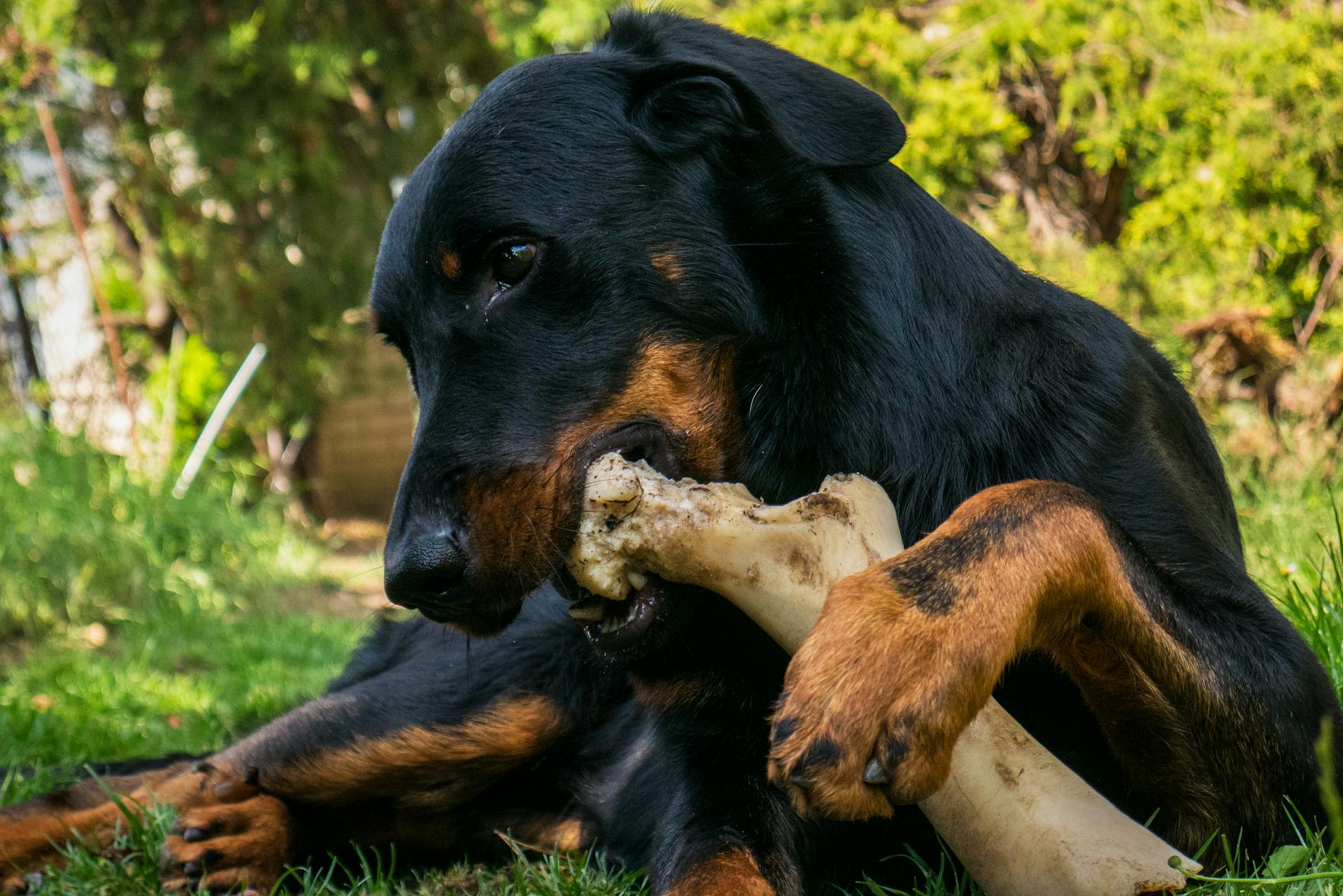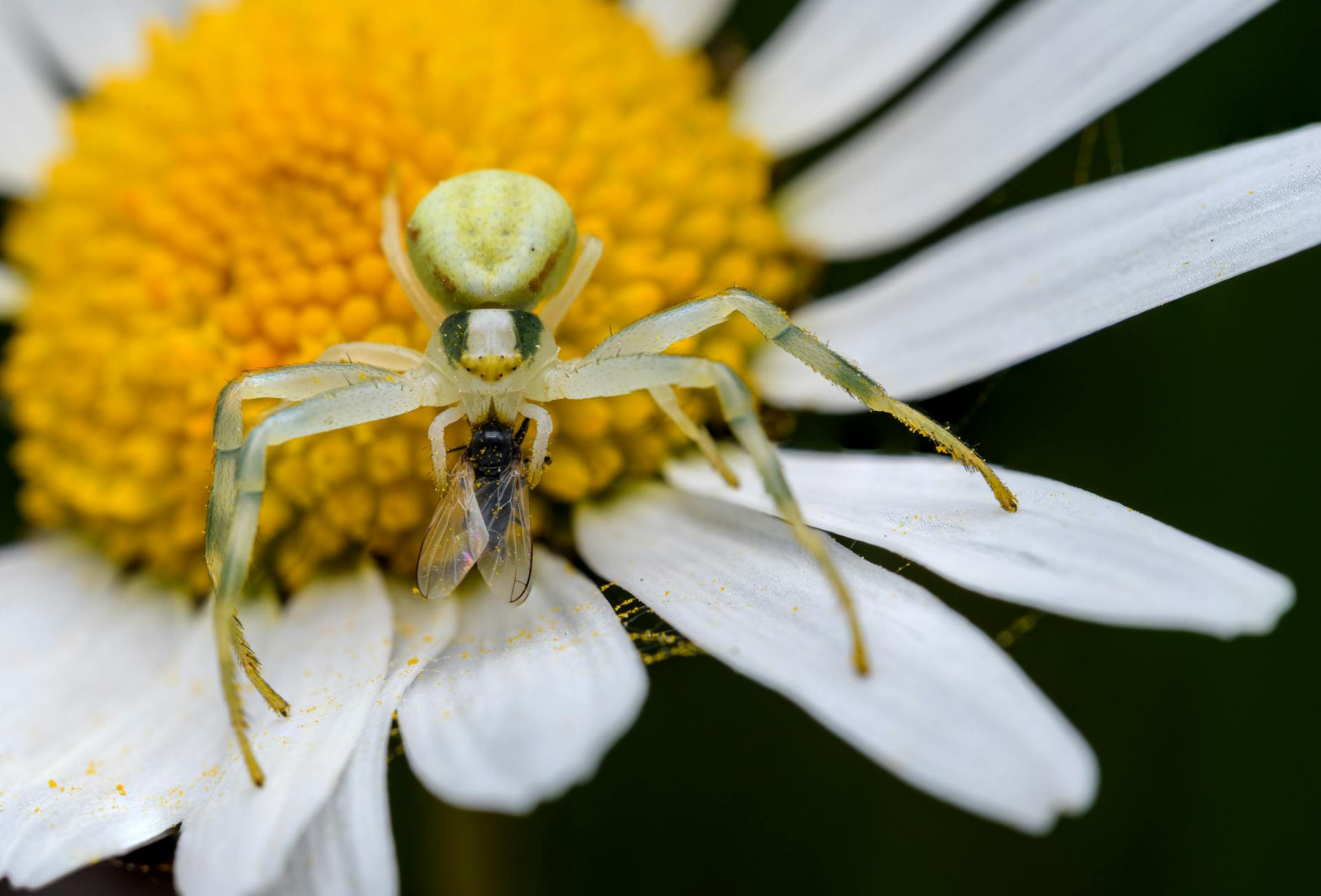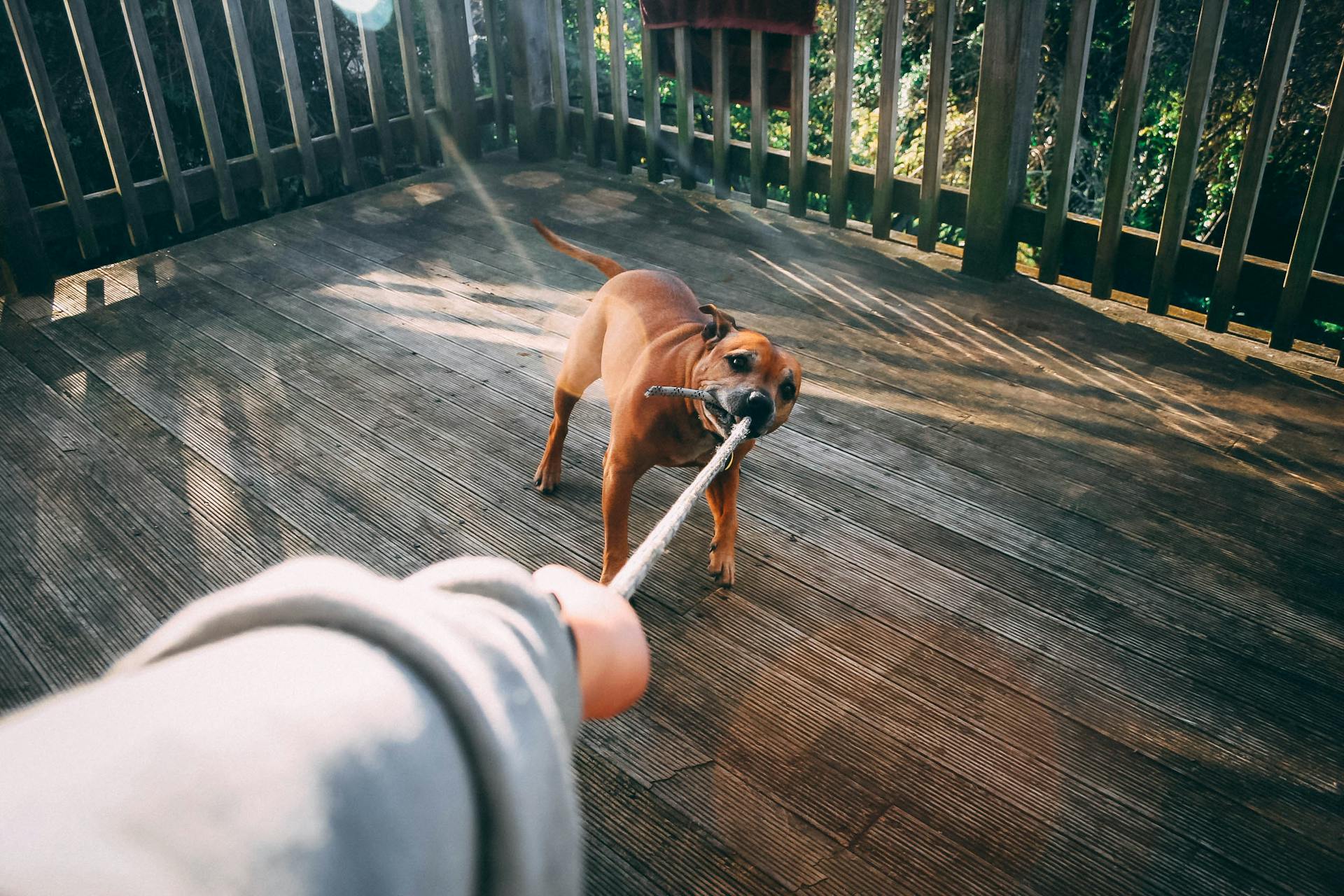
Ferrets are often thought of as aggressive, biting animals. While it is true that ferrets can be biters, it is also true that this behavior can be trained out of them. With patience and consistency, you can train your ferret not to bite.
The first step in training your ferret not to bite is to understand why they bite in the first place. Ferrets are natural predators and in the wild they use their teeth to kill their prey. They also have very sharp teeth and powerful jaws, which can make them seem aggressive when they bite. However, most ferrets that bite do not do so out of aggression, but out of fear or excitement. When a ferret is scared or excited, they may bite out of reflex. This is why it is important to never hit or scare your ferret, as this will only make them more likely to bite.
The next step in training your ferret not to bite is to provide them with positive reinforcement when they do not bite. This means rewarding them with treats or praise when they display good behavior. For example, if your ferret is playing with you and does not bite, give them a treat. This will show them that they are being good and will encourage them to continue this behavior.
Finally, be patient and consistent when training your ferret not to bite. Like with any training, this will take time and you may not see results immediately. However, if you are patient and consistent, you will eventually see your ferret's biting behavior diminish.
Consider reading: What Shampoo Is Good for Ferrets?
What are some initial steps to take when training a ferret not to bite?
When first bringing home a new ferret, it is of utmost importance to properly introduce the animal to any and all family members, including any other pets that may already be in the home. After the initial excitement of a new pet wears off, it is important to remember that a ferret is a lifetime commitment and regular care and attention must be paid to the animal in order to ensure its health and happiness.
One of the most important initial steps to take when training a ferret not to bite is to provide the animal with plenty of toys and playtime. A ferret that is bored or not given enough attention is more likely to bite out of frustration. It is also important to never use your hands as playthings or to tease the ferret in any way; this will only teach the animal that biting is an acceptable form of play.
If a ferret does happen to bite, it is important to react calmly and quickly. Loudly saying "no!" and placing the animal in its cage for a short time-out can help the ferret understand that biting is not acceptable behavior. With consistence and patience, most ferrets can be trained not to bite.
Suggestion: When to Stop Crate Training
How can you provide positive reinforcement when training a ferret not to bite?
When training a ferret not to bite, it is important to use positive reinforcement so that the ferret associates the desired behavior with something pleasant. The most common way to provide positive reinforcement is to give the ferret a treat when it exhibits the desired behavior. Other ways to provide positive reinforcement include petting or scratching the ferret, praising it verbally, or giving it a toy. It is important to be consistent with the reinforcement so that the ferret knows that the desired behavior is always rewarded.
If this caught your attention, see: Why Are Ferrets so Flexible?
What are some things to avoid when training a ferret not to bite?
Biting is a natural behavior for ferrets, and they will often bite when they are excited, frightened, or feeling threatened. However, bites can be painful and cause injuries, so it is important to train your ferret not to bite.
Here are some things to avoid when training your ferret not to bite:
1. Don't use punishment to try to stop your ferret from biting. This includes hitting, slapping, or scolding your ferret. Punishment can scare your ferret and make them more likely to bite.
2. Don't try to grab your ferret's mouth to stop them from biting. This will only make them more anxious and more likely to bite.
3. Don't use your fingers as toys. Your ferret will likely bite if you play with your fingers in front of their face.
4. Be patient when training your ferret. It may take some time for them to understand that biting is not acceptable.
5. Reward your ferret when they display good behavior. This can include treats, praise, or petting.
Discover more: Dog Training Stop Biting
What are some tips for teaching a ferret not to bite during play?
One of the most common questions new ferret owners ask is “how do I stop my ferret from biting during play?” It’s a valid question, as even the most docile ferret can sometimes deliver a nasty bite during playtime – and those bites can hurt!
There are a few things you can do to help reduce the chances of your ferret biting during play:
• Be patient – it can take some time for your ferret to get used to being handled and played with, so go slowly at first and don’t force anything.
• Teach your ferret what is and isn’t appropriate to bite. If your ferret nips you during play, let out a loud “yelp” to startle them and then end the play session immediately. After a few times, your ferret will learn that biting means playtime is over.
•Provide plenty of toys and playthings for your ferret to keep their teeth occupied – why bite you when there are so many other things to chew on?
• Avoid using your hands as playthings – instead, opt for toys that your ferret can chase and catch.
• Be consistent – if you allow your ferret to bite you sometimes, they will be confused about what is and isn’t acceptable.
With a little patience and perseverance, you can teach your ferret not to bite during playtime – and enjoy many happy hours of play together!
You might like: Why Is My Ferret so Skinny?
How can you help a ferret understand that biting is not acceptable?
One of the most important things you can do to help a ferret understand that biting is not acceptable is to provide positive reinforcement when the ferret is not biting. This means rewarding the ferret with treats, praise, or even just attention when it is behaving in a non-biting manner. It is also important to be consistent in your responses to biting; if you allow the ferret to get away with biting sometimes, it will be more difficult to convince the ferret that biting is never acceptable.
It is also helpful to redirect the ferret's attention to something else when it starts to bite. This could mean offering the ferret a toy to play with, or simply walking away from the ferret and ignoring it until it stops biting. If the ferret is biting out of aggression, it may be necessary to provide additional support, such as professional behavior training. Ultimately, it is important to be patient and consistent in your efforts to help a ferret understand that biting is not acceptable.
Worth a look: Training Puppies Not to Bite
What should you do if a ferret bites you while you are training it?
There are a few things you should do if a ferret bites you while you are training it. First, you should try to remain calm. It is important to understand that biting is a natural part of a ferret's behavior and it does not necessarily mean that the ferret is angry or aggressive. However, if the biting is excessive or if it breaks the skin, it is important to seek medical attention.
If the ferret is biting excessively, you may need to consult with a ferret behavior specialist to find out how to best address the issue. In some cases, it may be necessary to rehome the ferret. However, if the biting is not excessive and you are able to work with the ferret, there are a few things you can do to help reduce the biting.
First, you should make sure that you are providing the ferret with plenty of opportunities to play and exercise. A tired ferret is less likely to bite. You should also try to provide the ferret with lots of chew toys to help alleviate boredom and reduce the urge to bite. Finally, you should keep training sessions short and Sweet to help the ferret stay focused and avoid getting frustrated.
If a ferret bites you, it is important to seek medical attention if the skin is broken. You should also consult with a ferret behavior specialist if the biting is excessive. However, if the biting is not excessive, you can try to reduce the biting by providing the ferret with plenty of opportunities to play and exercise, giving it lots of chew toys, and keeping training sessions short.
Consider reading: Types of Dog Bites
What are some ways to help a ferret feel comfortable and not bite?
If you've just adopted a ferret, congratulations! You've added a fun, active, and loving member to your family. Ferrets are wonderful pets, but they do have some unique needs. Here are some tips to help your new furry friend feel comfortable and avoid biting.
Ferrets are naturally curious creatures and love to explore. Give your ferret plenty of room to roam and explore. A ferret-proofed room or pen is the best way to give your ferret the exercise and stimulation he needs.
Ferrets are also social creatures and do best when they live with at least one other ferret. If you can't adopt another ferret, make sure to spend plenty of time playing and interacting with your ferret every day.
Like all animals, ferrets need proper nutrition to stay healthy. A diet of high quality ferret food, supplemented with occasional treats, will keep your ferret happy and healthy.
Most importantly, give your ferret lots of love. Ferrets are very affectionate creatures and thrive on human attention. Take the time to bond with your ferret and you'll have a friend for life.
What are some signs that a ferret is getting ready to bite?
When a ferret is getting ready to bite, there are several signs that can be observed. Firstly, the ferret may start to lick its lips or nose as a sign of anticipation. Secondly, the ferret may start to growl or hiss as a sign of aggression. Finally, the ferret may show its teeth as a sign that it is ready to bite. If you see any of these signs, it is best to back away from the ferret and give it some space.
How can you stop a ferret from biting once it has started?
ferrets are very playful creatures and love to play roughly. Sometimes they nip while playing because they think it's part of the game. If your ferret starts biting, there are a few things you can do to stop it.
First, try to redirect your ferret's attention to something else like a toy or a treat. This will help to get their mind off of biting. If that doesn't work, try squirting your ferret with water or using a loud noise to startle them. These techniques should only be used as a last resort, as they could potentially scare your ferret.
If your ferret is biting because they are anxious or stressed, try to figure out what is causing this and remove the source of their stress. Sometimes Ferrets will also bite out of boredom, so make sure they have plenty of toys and things to keep them occupied.
If you have tried all of these things and your ferret is still biting, it is best to consult with a vet or an experienced ferret owner. They will be able to give you more specific advice on how to deal with your ferret's biting behavior.
Frequently Asked Questions
How to train a ferret to stop biting?
There are many ways to train your ferret to stop biting. One of the simplest and most successful ways is to use a Ferret Tree. shown below. Place the tree in an area where your ferret regularly bites (such as your bed or playpen) and put treats inside the tree. When your ferret is nibbling on a treat from the tree, praise him/her and repeat this routine frequently.
What do you need to train a ferret?
One of the most important things you will need for ferret training is a ferret! Besides a ferret, you will need some form of reward (in the form of a treat, oil, paste, etc.). You can also use a ferret clicker, although it is not necessary. For best results, I recommend finding a treat/oil/paste your ferret loves.
Can ferrets be litter trained?
Yes ferrets can be litter trained. They are natural diggers, so it is fairly easy to train them to use a litter box. As with all training, patience and consistency are key. You will need some type of litter, such as clay, sand or wood pellets, and enough for your ferret to cover in its box. Ferrets generally use about one-quarter of the amount of litter that a human needs. Place the litter in the middle of the box, near the opening. Give your ferret plenty of time to get used to the new habit, several weeks isrecommended. Once your ferret is using the box regularly, you can begin to restrict access to designated areas outside of the box (such as under furniture).
How do you train a ferret not to bite?
To train a ferret not to bite, grab your ferret by the loose skin on the back of its neck, lift it to your eye level, and say "No" in a firm voice. If your ferret continues to bite, try putting it in a "time out" each time it bites by placing it in its travel carrier for 5 minutes.
Why do ferrets bite each other?
Ferrets bite each other to communicate aggression, dominance, or fear. Ferrets may also nibble on each other when they are settling down after a tussle.
Sources
- https://ezinearticles.com/
- https://www.ferretproblems.com/how-to-train-a-ferret-not-to-bite-the-only-way/
- https://ferretvoice.com/ferret-bite/
- https://www.youtube.com/watch
- https://www.mypetneedsthat.com/train-ferret-not-to-bite/
- https://ferretsbest.com/how-to-train-your-ferret-not-to-bite/
- https://holisticferretforum.com/care-enrichment/common-behavior-problems/no-bite-training/
- https://www.quora.com/How-do-you-teach-a-deaf-ferret-not-to-bite
- https://www.youtube.com/watch
- https://ezinearticles.com/
- https://www.wikihow.com/Train-a-Ferret-Not-to-Bite
- https://friendlyferret.com/ferret-biting/
- https://zikspax.com/articles/how-to-train-a-ferret-not-to-bite
- https://ferretvoice.com/ferret-training/
- http://ferretracing.club/how-to-stop-ferrets-biting/
Featured Images: pexels.com


